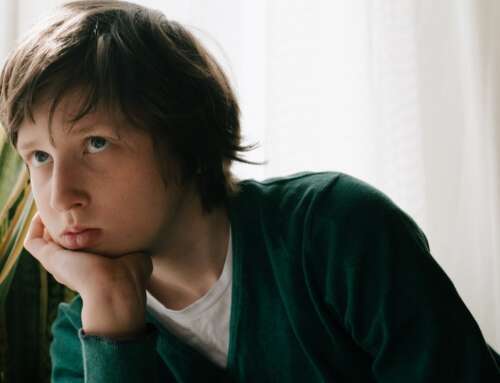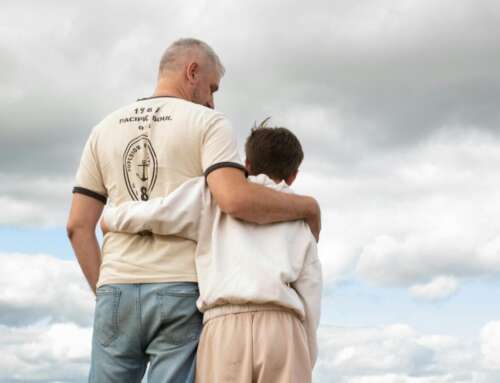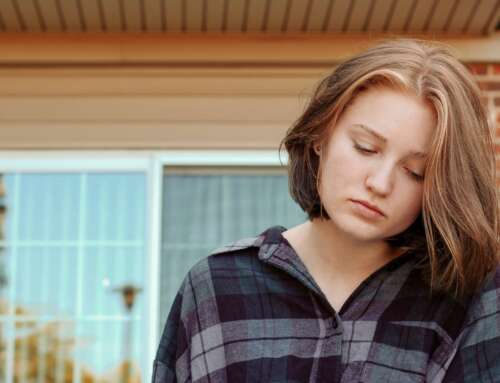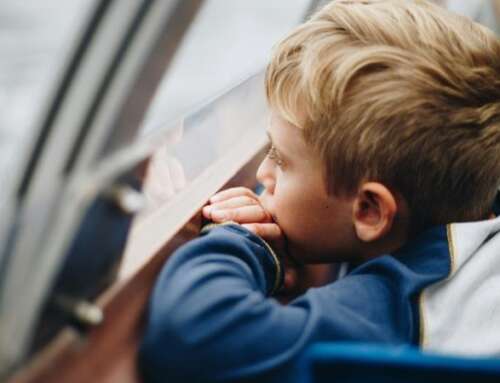 THE murder of schoolboy Luke Batty last year shocked a nation. His mum, Rosie, talks to APN Newsdesk about why she has spent the past year lobbying for changes to our attitudes towards and responses to family violence, and why she is supporting our campaign.
THE murder of schoolboy Luke Batty last year shocked a nation. His mum, Rosie, talks to APN Newsdesk about why she has spent the past year lobbying for changes to our attitudes towards and responses to family violence, and why she is supporting our campaign.
CALL her what you like – Australian of the Year, fierce campaigner, victim of family violence – but, at its core, what has happened to Rosie Batty in the past year is simple, final, crushing.
She is no longer a mother.
When her former partner, Greg Anderson, bludgeoned and stabbed their 11-year-old son Luke to death after an ordinary cricket practice session in February 2014, the pulsing heart at the centre of Rosie’s life was ripped out in the most shocking of ways.
>>SIGN THE PETITION TO HELP END DOMESTIC VIOLENCE
It’s not just the big things she misses – the kisses and cuddles she can no longer have, the emptiness in her home, her life – but also the daily minutiae that add up to a parent’s love and care.
“Now I don’t get up every morning and think about the simple things – what’s in Luke’s lunchbox that day, or what I need to do to get him to Scouts in the afternoon,” she told APN Newsdesk.
“Now I’m somebody who, through his death, is the Australian of the Year.”
There are days when Rosie finds it difficult to reconcile the enormous privilege of being named the 2015 Australian of the Year with the enormous loss it stemmed from.
There are days when she wonders if all the campaigning on family violence she has done since Luke’s death, and the frantic pace that goes with her current title, are just distractions from recovering from the loss of her beloved boy.
But most days, Rosie understands she has a unique window of opportunity and people are listening to her.
After many years of battling a violent and psychologically abusive former partner, and sometimes indifferent police and magistrates, this time people are listening.
“If Luke hadn’t died in such an extreme way, I’d just be one of those ‘family violence’ people no one listens to,” Rosie says on the website for the Luke Batty Foundation, which she has since formed with a view to changing the way society views family violence and how it supports its victims.
The 53-year-old former businesswoman is focusing both on the long and short term – to eventually change the entrenched gender inequalities, stereotypes and unconscious sexism that, at their worst, culminate in domestic and family violence, but in the meantime to improve our responses to victims and the services to support them.
She has recently become an ambassador for national lobby group Our Watch, whose mission is to wipe out violence through working with policy makers and developing a range of primary prevention projects.
One project Our Watch is trialling in Victoria is Respectful Relationships Education in Schools, which focuses not just on teaching students about healthy relationships, but also on encouraging schools to reinforce those teachings by being good examples of gender equality in the workplace and embedding the values in other subjects taught.
“It’s important for schools to understand they need to be talking about these issues and making them part of the curriculum,” Rosie said.
“There are stages in a child’s development where it’s important that relationships, and perceptions of relationships, are discussed and taught.”
Because they operate as mini communities, schools are an important place to be having conversations at an early age about sex, power and violence, and to pick apart the many common misconceptions about domestic and family abuse.
But the same conversations also need to be had among the community at large.
“We still are very much a victim-blaming society,” Rosie said.
“We constantly judge a woman for not leaving, we ask why she chose him, and we put all the responsibilty for safety on her.
“Why is the onus on the woman to correct the behaviour? He’s allowed it to carry on. All she wants is for the violence to stop.
“We don’t challenge perpetrators enough to change their behaviour, and we don’t talk enough about intervention.”
She recognises societal attitudes don’t just change overnight, but she’s also optimistic that if the long-term strategic work is done now by groups such as Our Watch, there is hope for change in years to come.
In the meantime, Rosie believes more immediate change is needed in the way police and courts – in many cases, a woman’s first point of contact – respond to family violence.
Many of the attitudes she is fighting are just as embedded among members of the police and judiciary as they are among the wider community, meaning how a woman is treated when she makes a complaint can be down to the luck of the draw.
“When you go to court, you may be lucky and get a good magistrate, but you may be unlucky and get one who’s not so good, who doesn’t believe you and who minimises your concerns,” Rosie said.
“The court process is exhausting. It’s like another avenue of abuse. ”
She wants that to change, through better education across the legal and policing sphere – particularly in relation to the complexities and needs of families plagued by psychological abuse and fear, which can be more difficult to understand.
But it’s not just the authorities who don’t understand.
Rosie said sometimes even the closest people to her were unable to navigate the labyrinth of fear and emotion inside her.
“Some people have said to me, ‘I wouldn’t let him get away with that’ or ‘I would’ve done this or that’ … and it really used to get to me because they’ve never been truly frightened,” she said.
“When you’re in a healthy relationship and it’s safe for you to have an argument with your partner, you can’t understand that fear.
“When you’re in a violent relationship, sometimes you never know what will trigger the violence.”
There are many misconceptions about family violence, but perhaps one that has contributed to the topic long being off the national agenda is the notion it only happens to people who are somehow weaker, lower in the social order, not like “us”.
But Rosie Batty is living proof this can happen to anyone.
A former franchisee of a children’s party business who lives on acreage in Victoria’s picturesque Mornington Peninsula, she is articulate, warm, funny and financially independent – not the stereotypical victim profile as we know it.
But the stereotype, she insists – it’s wrong. There is no such thing as a typical victim.
“You never expect things to happen to you, so so you have a certain judgment about the types of people it can happen to,” she said.
“But your life can change very quickly … and you can find yourself in a situation that you’re not safe in.
“I think that’s why I’ve been able to get so many people to identify with me – I’m an everyday person. I live in a nice house in a nice area, I drive a nice car. It’s confronting for some.
“And you know, I’m a strong person. I’m not submissive or weak. I’m outspoken. I challenged Greg on most things – and still he was able to assert control over me.”
As she looks to the year ahead, there is much work to do.
If life as a campaigner was busy in the months after Luke was killed, it’s been positively frenetic since Prime Minister Tony Abbott read out her name on the eve of Australia Day.
“I don’t want to get to the end of the year and say I’ve been pulled from pillar to post but I was too busy to get anything achieved,” Rosie said.
“I need a team around me to create a strategic campaign that makes us a powerful lobby group.”
She is assembling that team and intends for the Luke Batty Foundation to be a force to be reckoned with, even though many would say she has already achieved more in the family violence sphere than most have in a lifetime.
Last month, a $40 million Royal Commission into family violence started in Victoria, the result of Premier Daniel Andrews being so moved by Rosie’s story he committed to it during the recent state election. It is expected to wrap up at the end of this year.
The campaigner was vocal in her criticism of Prime Minister Tony Abbott’s announced cuts to a range of domestic violence support services across the country, which could amount to about $300 million, and it is hoped some of these will be reversed.
She also plans to write a book about her experiences, once she has a moment to pause for breath.
For now, the Australian of the Year is fighting a battle of hearts and minds and she is serious about using this important year to turn people’s high-profile support and sympathy for her into meaningful action.
“I just think if you have the drive to do what you can while you can, then you should,” Rosie said.
“I’ve lost the most precious thing to me. I don’t know if it’s healthy for this (lobbying) to be a distraction from all that, but I feel like it’s the right thing to do.
“And it’s an easier way for me to recover than anything else.
“For me, this is about harnessing all that power and goodwill and desire for change. I want to make a difference.”
via DV campaigner: ‘Why is the Onus on the Woman?’: The Satellite







I was deeply saddened by the words in your story saying she [Rosie Batty] ‘is no longer a mother’. I am sure she would be horrified by these words too. From someone who has lost a child myself (not under the same circumstances thankfully) I did not, and continue to not, feel any less a mother because my child has died. This comment adds insult to injury and I think Generation Next should be more mindful of the words you use when tackling such a sensitive issue, particularly with such a courageous woman who after being through such tragedy is trying to bring to the fore vital conversations around domestic violence.
Great article though how very offensive to say Rosie is no longer a mother! One does not cease being a mother on the death of a child. She will always be Luke’s mother.
“She is no longer a mother” is a glaringly insensitive phrase in an otherwise good and important article. Losing your child does not cancel out your motherhood. I’m pretty sure Rosie Batty still thinks of herself as a mother – a bereaved one.
Rosie Batty, you are inspiring!